
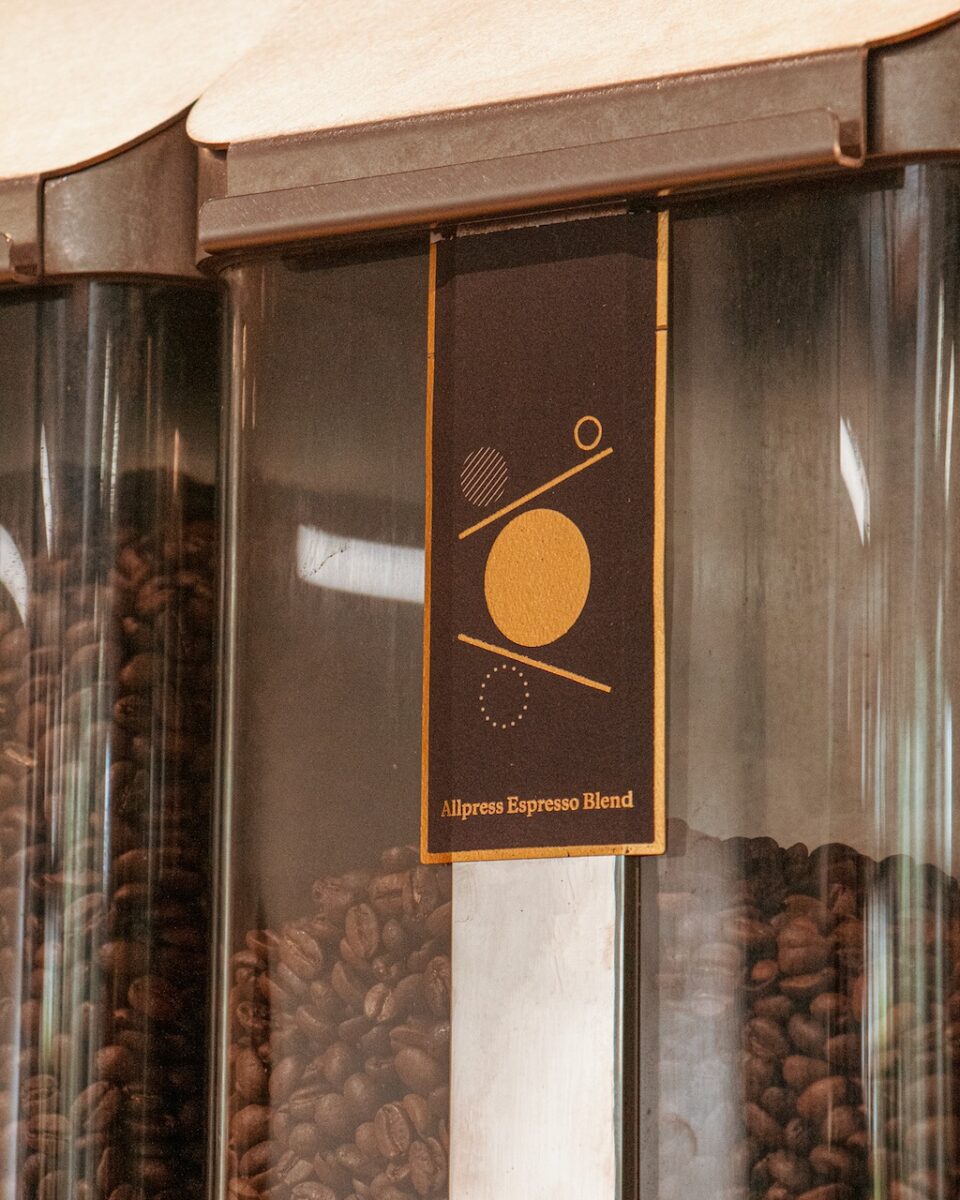
Allpress Espresso (Allpress) was founded in New Zealand in 1989, and in 2001 began directly trading with coffee producers. For over thirty years, they have continued to refine their signature coffee, the iconic Allpress Espresso Blend, producing a consistent and reliable coffee flavor.
In their wholesale coffee business, Allpress supplies coffee to over 1200 independent cafes and restaurants in more than five countries, and offers barista training and technical support. Allpress directly operates a total of 13 cafes in four countries, making it one of the largest companies in the specialty coffee industry.
Nuno Silva joined the team at Allpress UK in 2017. As Coffee Coordinator, his responsibilities are wide-ranging, from buying green coffee beans, setting roast profiles, and quality control, to coffee communication between departments and some copywriting for the company’s social media platforms. We spoke to Nuno to find out how he feels about working for the company, five years on.
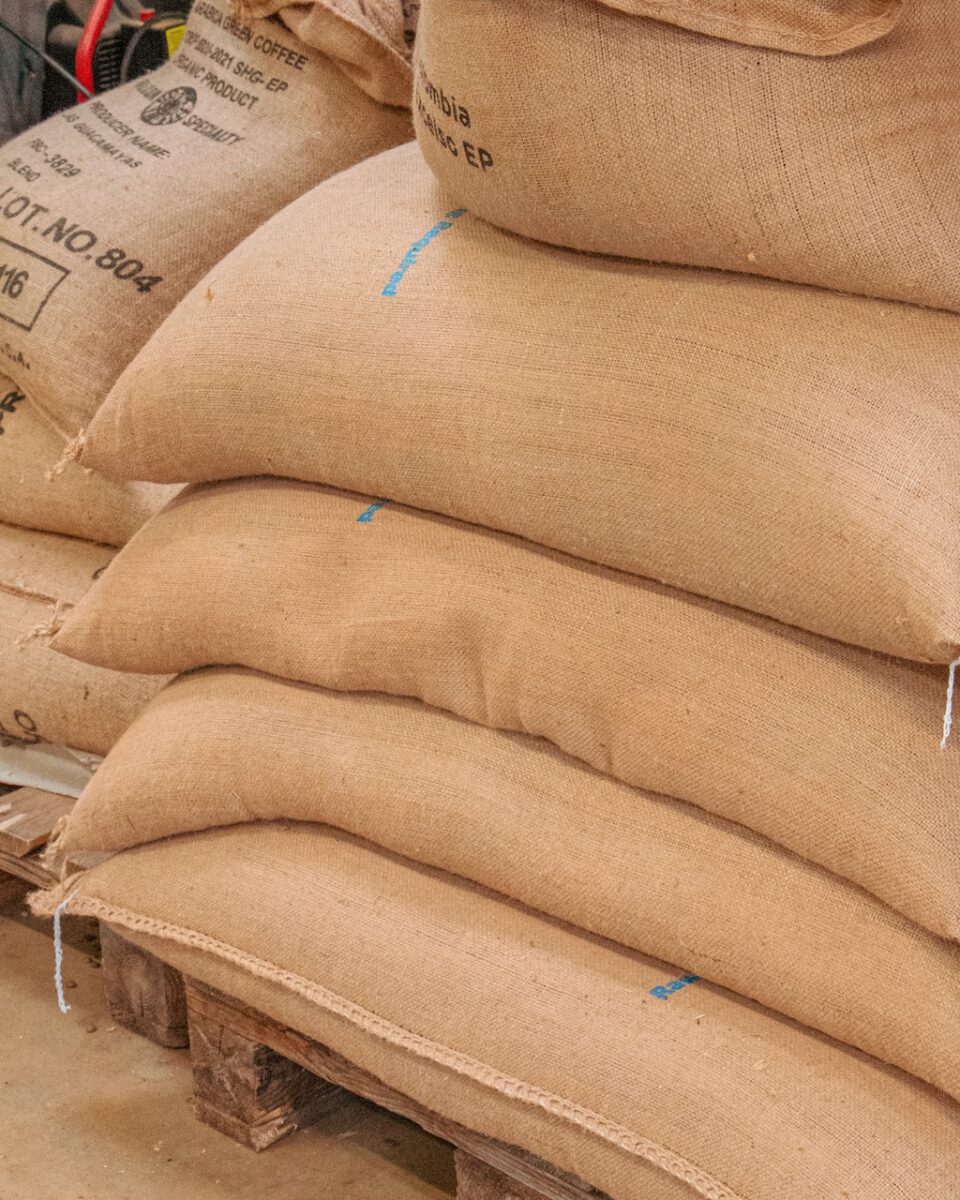
Big is not always bad
The specialty coffee industry, with its seed to cup philosophy, is counter to the mass-produced, commodity-based commercial coffee culture, and being a relative newcomer, roasters and cafes tend to be independent, smaller businesses. Allpress is the exception. Employing over 280 people globally, the UK branch alone employs 65 people, operates three cafes, and has 376 wholesale customers.
“One great thing about the size of the company is our purchase power. Allpress UK alone buys over 20 containers a year, and we’ve been buying the components for our main blend from the same producing partners for several years.
We can keep going back to the same partners year after year because we can assure them that we’ll be able to purchase the green bean. We buy both single estate and regional blends with 83 or more points on the quality scale, but we don’t expect coffee to have the same quality every year, or always be improving. We understand that the quality might be slightly different from year to year. But we’re committed in our relationship to always buy that coffee, regardless.”
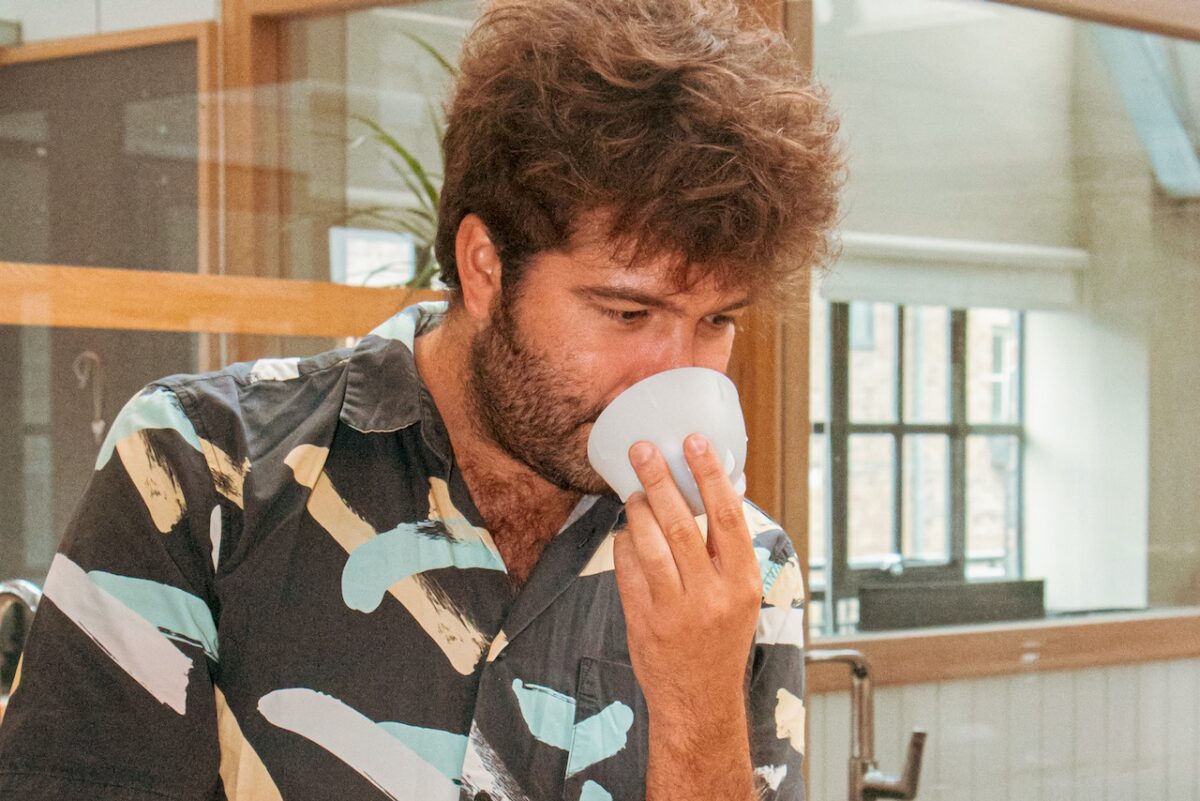
In April 2022, Nuno visited a supplier in Brazil who had been working with Allpress for around twelve years. While he was there, the producing family showed Nuno the equipment and facilities they were able to buy or develop thanks to the long-standing relationship with Allpress.
“Having a steady income makes it easier for producers to get loans and investment to develop their business. And it means that Allpress can have a stable supply of coffee. So it’s a mutually beneficial relationship.”
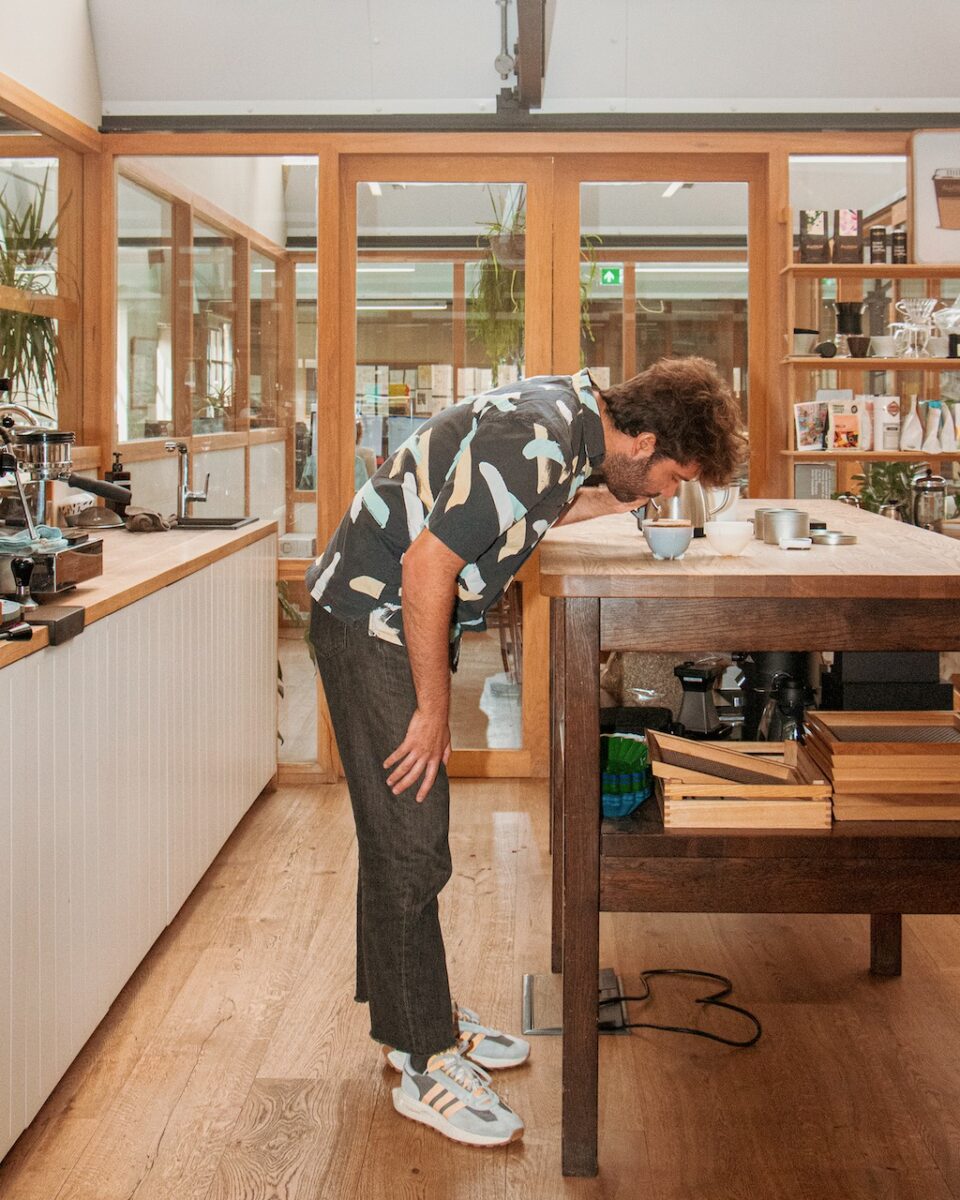
The coffee industry grew out of slavery, and even now the system is still dependent on the exploitation of cheap labor. While specialty coffee is gradually changing the situation by ensuring that producers are paid sufficiently for their work, for Nuno, it is far from ideal.
“If you visit these farms, you can see how labor intensive the whole process is. When people asked me about my previous trip to Mexico, and what my biggest takeaway was, I always say it was finding out that coffee is too cheap. Even though specialty coffee is sold at a higher price, when you see the hard labor that goes into growing, harvesting, and processing, you know that a lot of producers and field workers are not getting paid enough.
But in order to pay more for green coffee, businesses need to pass on that cost to their consumers. If this isn’t something they can accommodate, most can’t increase pay at the beginning point of the value chain. It’s a tricky thing to balance.”

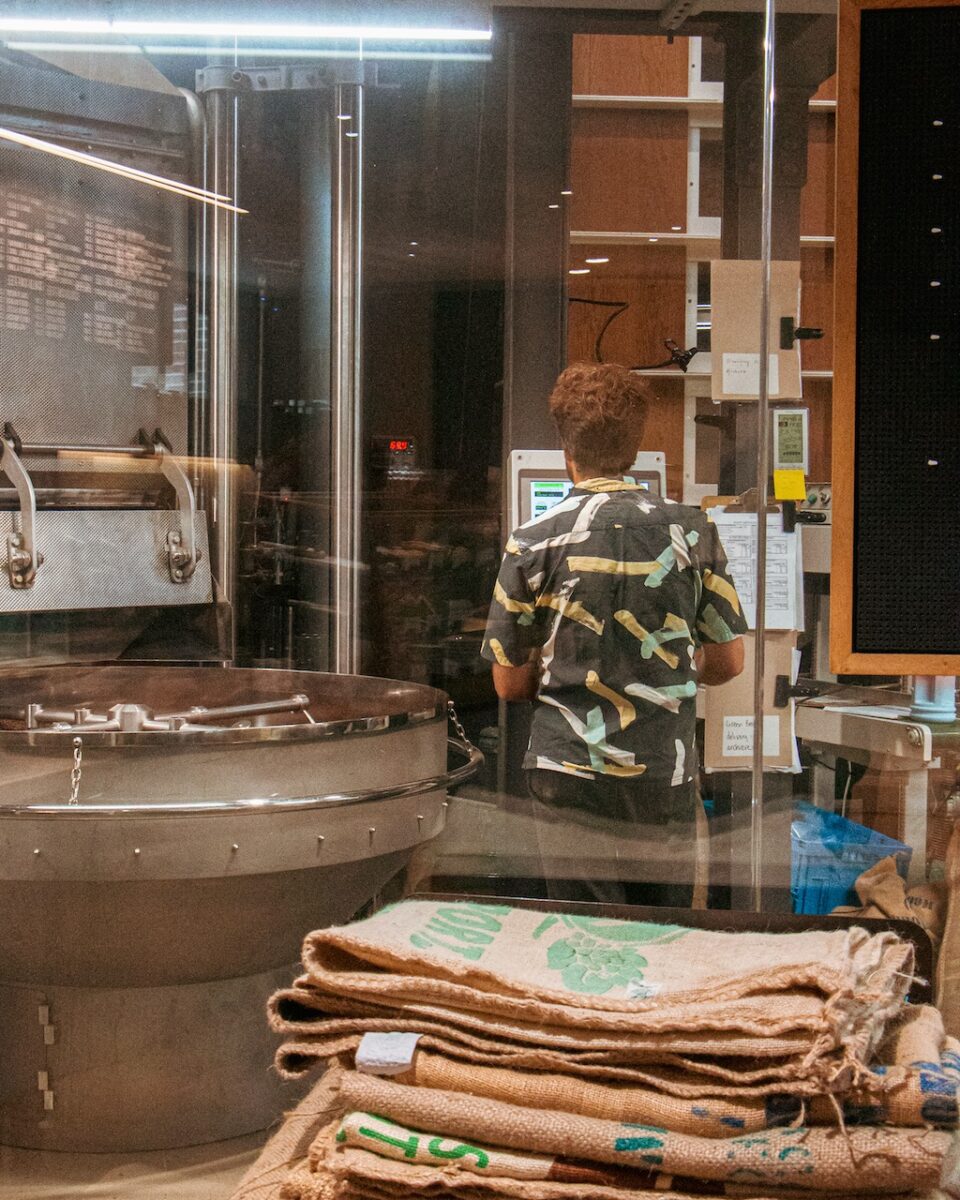
From faceless commodity to bringing humanity
Nuno’s empathy with the producers stems from his own experience watching his mother work for clothing manufacturers. Portugal, where Nuno was born and raised, is one of the main clothing manufacturing countries in Europe for medium to higher range clothing brands, due to the low labor costs.
“Of course, I’m against mindless mass production. It’s harmful for the planet and exploits labor in poorer countries. But it doesn’t change the fact that there are real people behind it, making that product. If it’s an artisanal item, people see the human behind it. But if it’s a massive manufacturing facility, people don’t. I think that’s wrong.
People are detached from coffee in the same way. Most people don’t think of it as an agricultural product with people behind it, growing and producing it. It’s seen as a commodity that you get from the press of a button, or a beverage you get in a can. Putting a face to products helps consumers feel a real connection and value beyond the item itself.
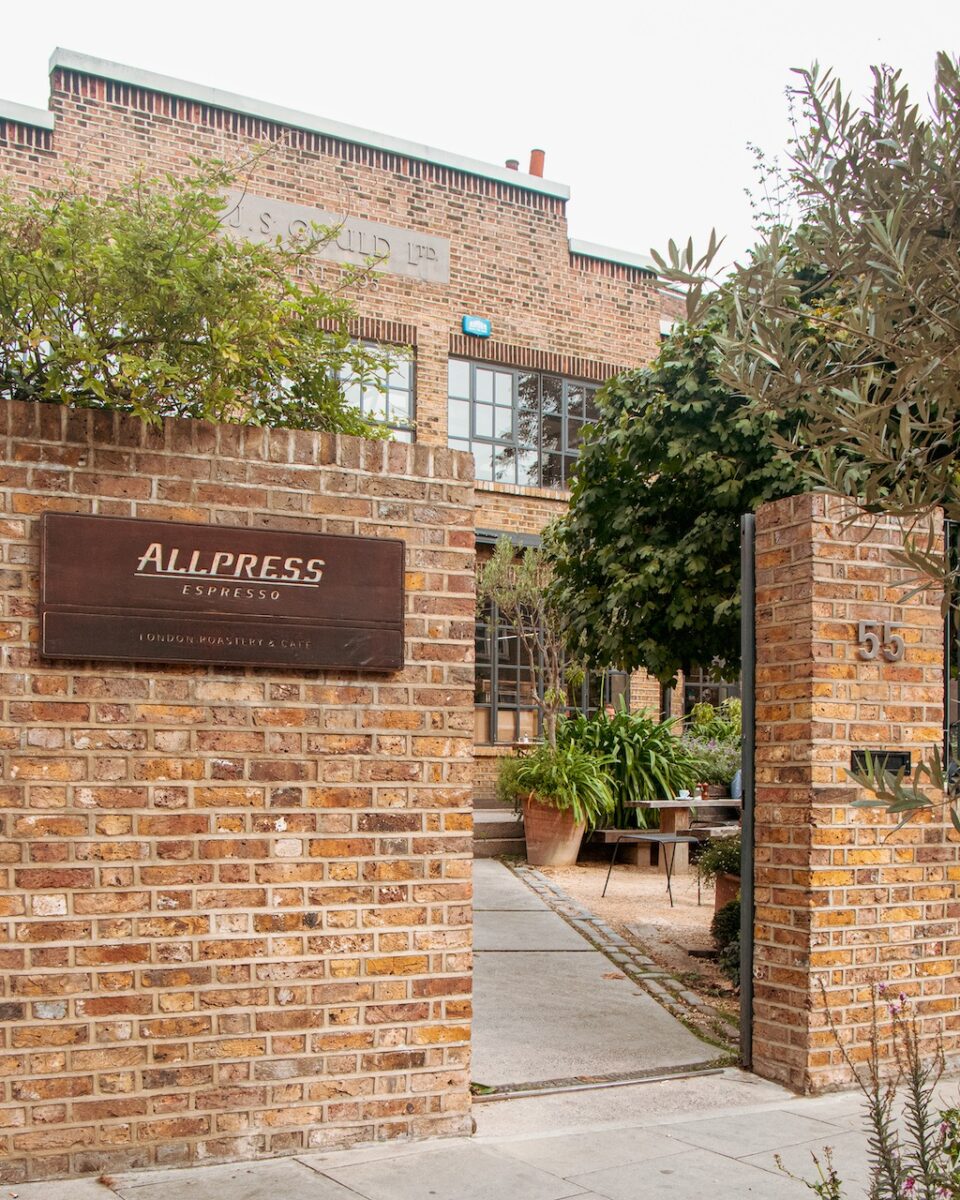
In 2009, Nuno left Portugal for London and took up a position with a German homeware retail chain. The job was nothing more than a way to make a living for Nuno, and though he became a manager, he resented not having any power over what was being sold in the store and eventually became tired of selling things he had no interest in.
“I definitely didn’t want to continue selling things that I didn’t see any value or purpose in. I wanted to work for an industry that had less disposable things. One of the reasons I took the job at the bakery cafe was because I wanted to work with consumable items, and the food and drink industry made sense as an option.”

Specialty coffee was the natural next step in his journey. Nuno’s move to London in 2009 coincided with the rise of the specialty coffee scene. The year after, everyone was talking about the British landing of the New Zealand founded roastery.
It was not long before Allpress became the go-to coffee shop for coffee aficionados and Nuno remembers how at the time people were talking about the impressive quality of Allpress coffee.
Although Nuno had interest in working for Allpress, he decided to hold off on applying. Even back in Portugal, Nuno had always been a coffee fan, but he had never made coffee professionally and felt he did not have the knowledge needed to work at Allpress. Instead, Nuno decided to use his managerial experience in retail and work at a bakery cafe, only later applying for a role at Allpress UK when he felt more confident.
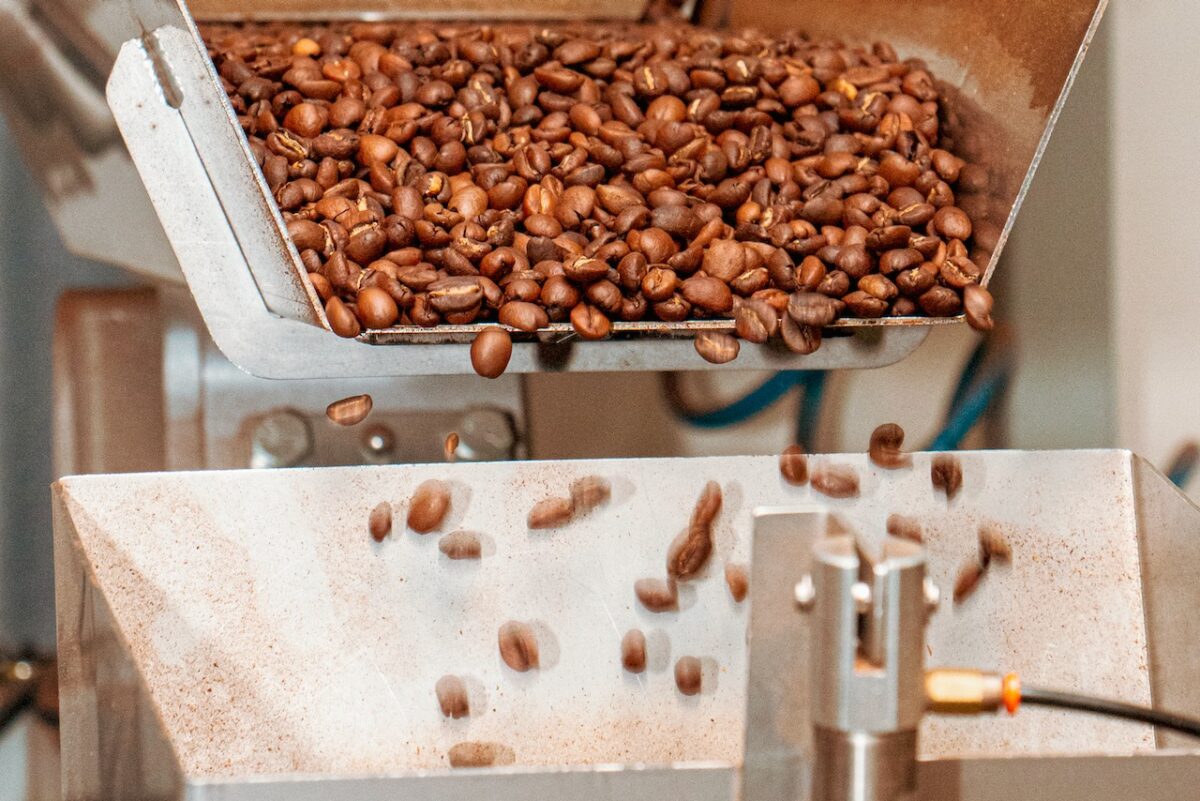
“It’s very different. I’m selling consumable products, and I’m selecting what we’re going to be selling. And knowing the people producing the coffee gives a value beyond the financial. It gives me a bigger emotional attachment to the product and more enthusiasm to make the most of my work.”

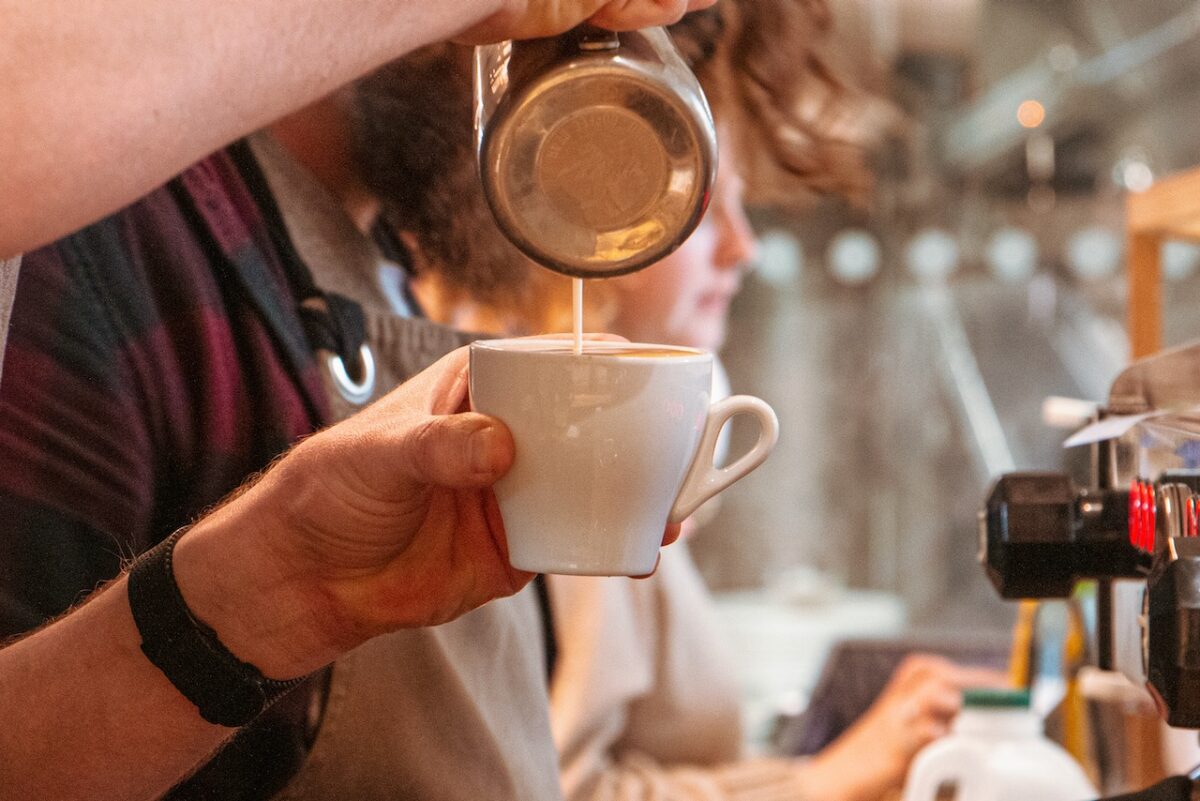
Good communication for sustainable growth
Coffee Coordinator is not the only unusual job title at Allpress. There are no baristas or floor managers, instead they employ All Rounders and Walk In Billboard Managers. “The job titles help define your position and your function in the company,” explains Nuno when asked the reasoning behind the unique naming.
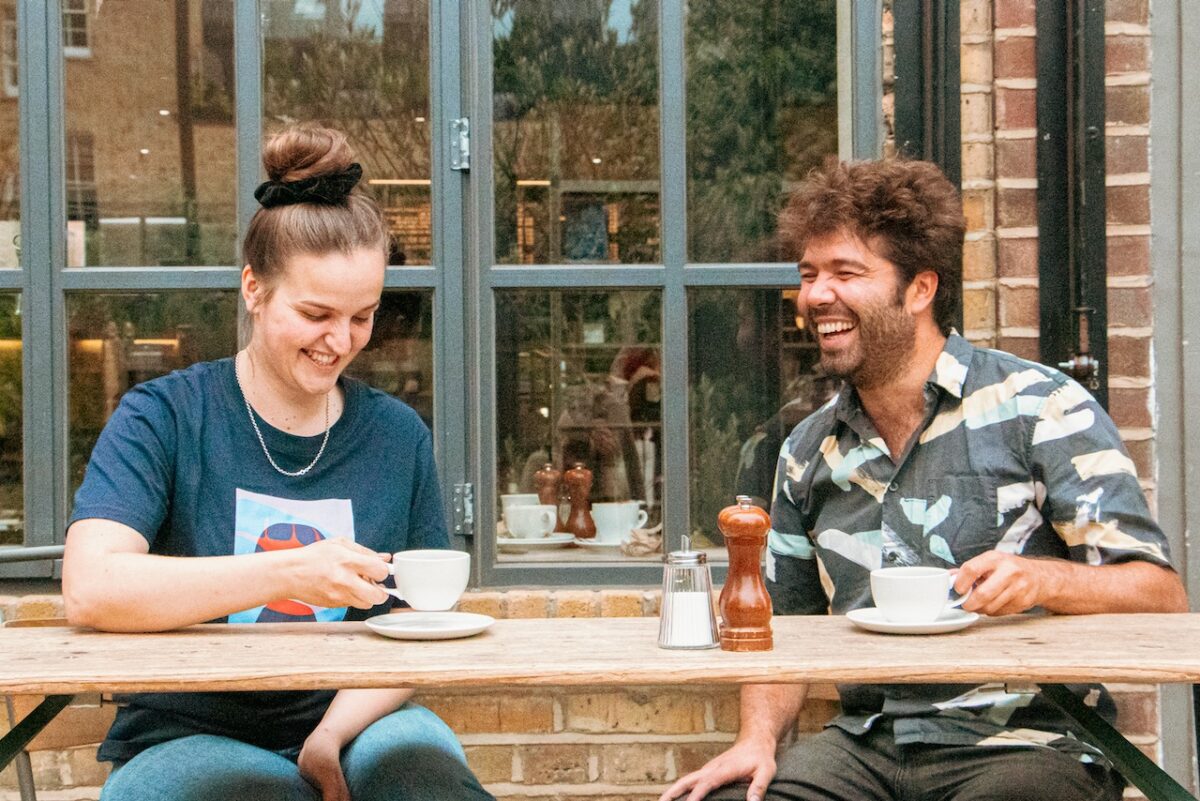
Often, the more a company grows, the harder it is to keep goals and values consistent among the employees. That’s why communication between all levels of staff is prioritized at Allpress. Each department is overseen by a general manager who ensures that everyone is focused on the same goals.
“There’s a lot of communication at Allpress. Everyone’s very friendly and always willing to listen, and this helps you feel at ease when it comes to sharing your point of view. The company gives us a gym and pool membership, and we have access to mental health support if needed. There’s a lot of programs that are aimed at cultivating a healthy mind and body. And there are real friendships between the staff at Allpress, we go out for drinks and hang out together after work.
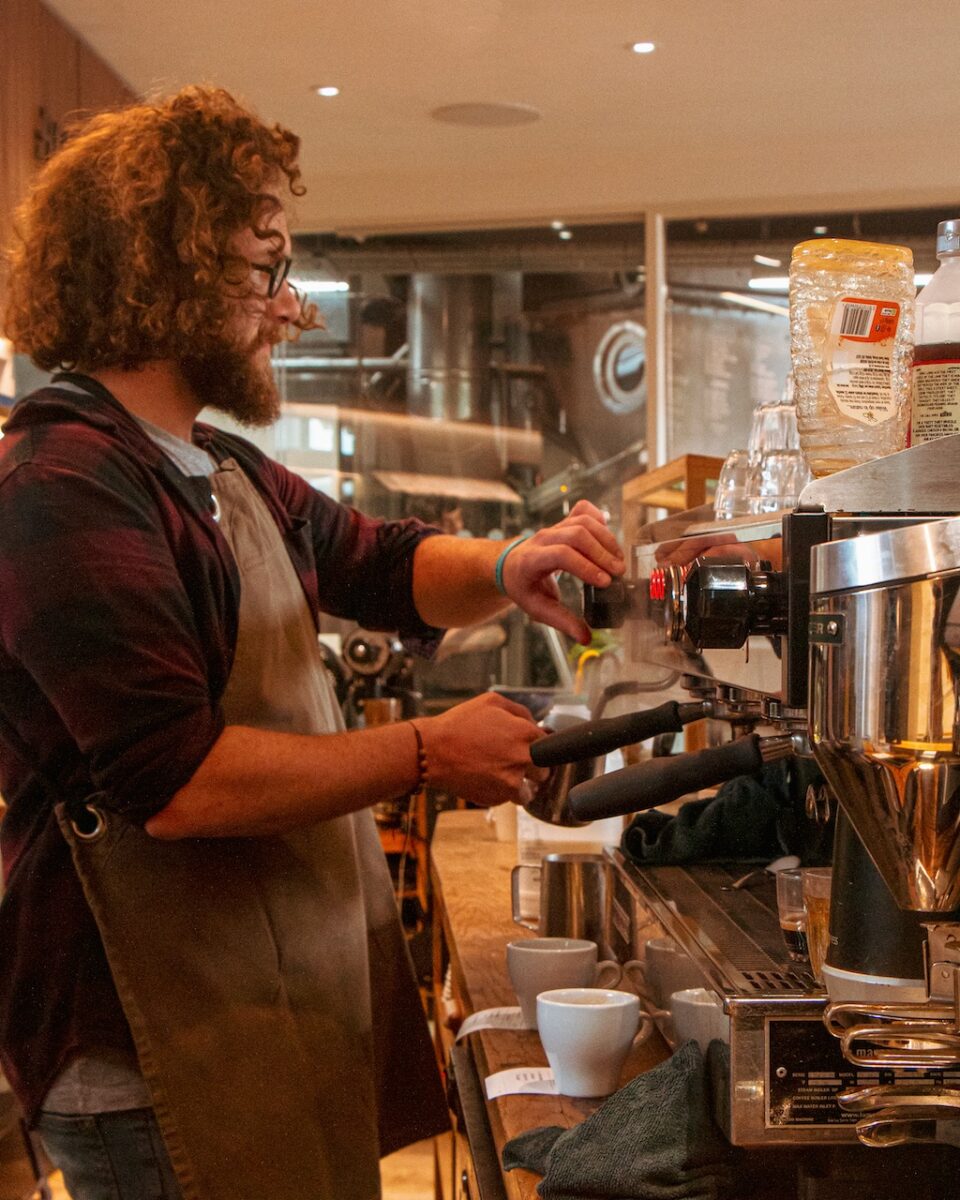
A lot of people that work for Allpress come here from New Zealand and Australia, because of the history the company has in those countries. They often don’t know anyone in the UK and I think it makes those connections at work more important, and helps to make the working environment friendlier.”
The fact that there are people who have moved to Allpress from wholesale customers is testament to the great working environment at Allpress UK. When the pandemic caused one of their wholesale customers to close down, Allpress hired five of their staff.
“We want to grow the business in a sustainable way that keeps our values as locked in as possible. Right now the market is more saturated, but since Allpress came to the UK the growth has been very organic.”

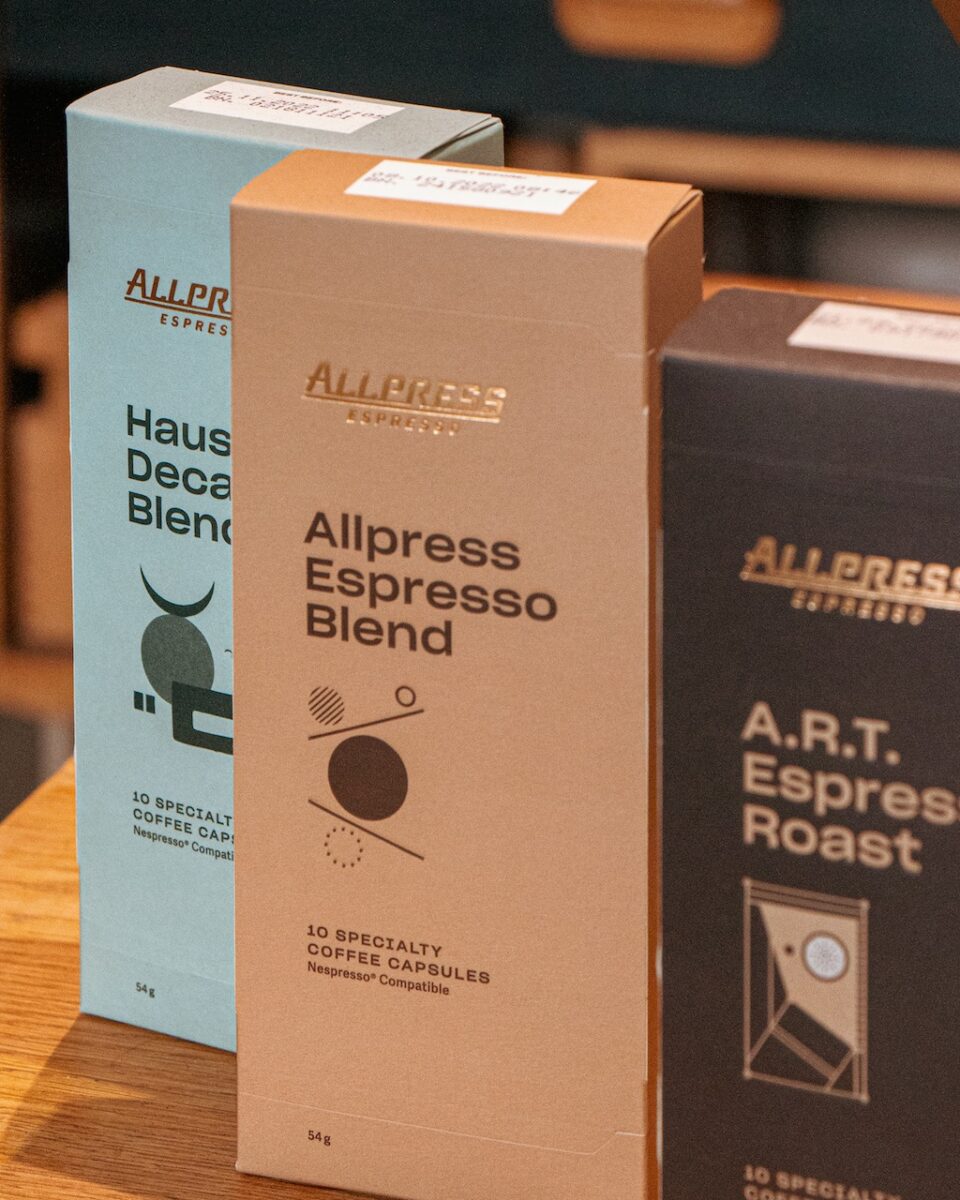
Finding comfort in consistency
In every market, the more people that join, the more likely the product is to become commoditized. Specialty coffee is no exception. Now that specialty coffee is fully recognized in the UK, and good coffee is available anywhere in the country, roasters need to find a way to give added value.
“What we want to give people is a brand they can trust. A brand they can count on to always bring the same iconic and recognizable flavor of the Allpress Espresso blend.
In fact, we spend most of our time working on keeping that consistency in flavor. It means that even if I leave Allpress and another person steps in, the blends will still be aimed at producing the same flavor profile. And that’s how Allpress achieves this flavor consistency.”
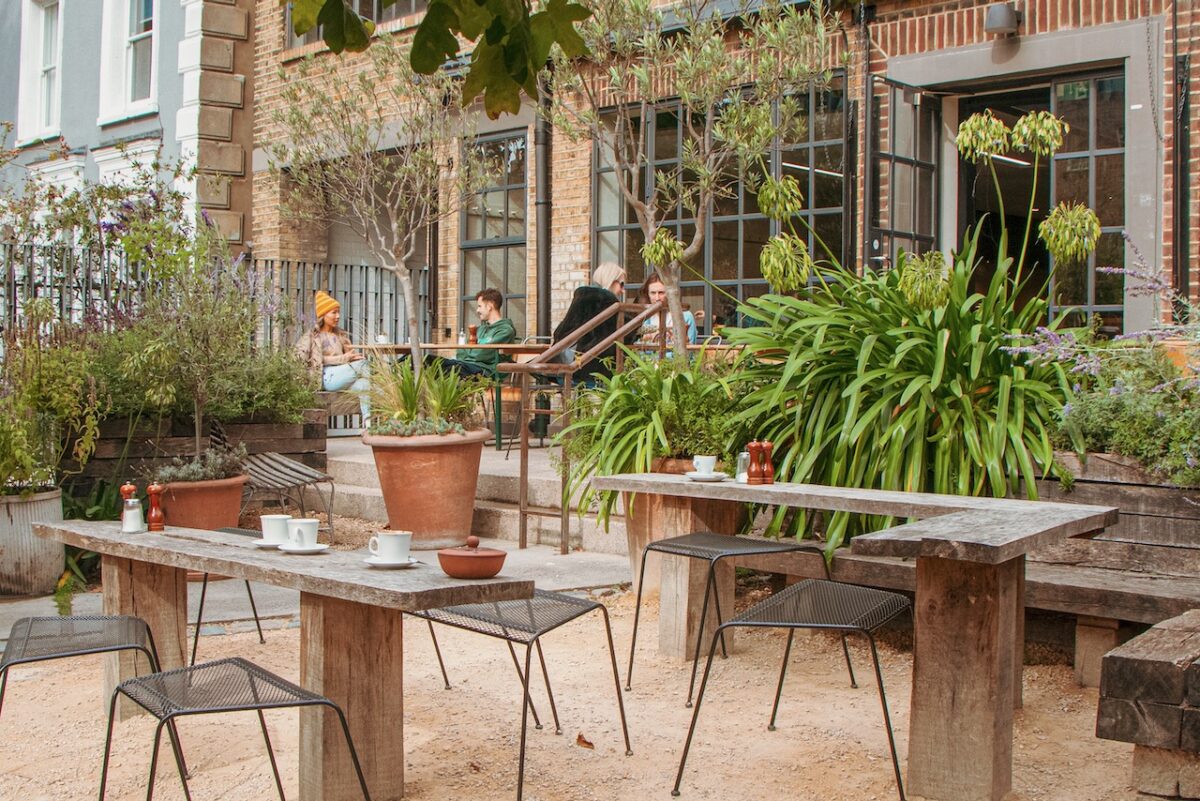
Humans are creatures of habit. Once we find something we like, we are loath to change. There is also something comfortable about consistency. In an industry where new processes and flavors are constantly being created, and many roasters and customers are looking for the next best thing, Allpress has continued refining the same dependable flavor for over 30 years.

“We don’t do blends because we want to build long-term relationships. The relationships happen because we want to keep continuity in the blends. I sometimes think this striving for consistency in the flavor profile is like being on a boat. We all trust in the direction we’re heading, so we’re happy to stay on board and enjoy the ride.”
Nuno’s smile says it all. Allpress Espresso may be considered a large company by specialty coffee standards, but their unwavering commitment to consistency has not only produced a flavor people can rely on, it has created a connected community that supports the happiness of all the people behind that coffee.
Originally written in Japanese by Tatsuya Nakamichi
MY FAVORITE COFFEE人生を豊かにする「私の一杯」
My favorite coffee would have to be one that someone else brews for me. When I brew my own coffee, I'm always quite critical. When someone else goes through the process of brewing something for me I appreciate it for what it is and simply enjoy it. Good, bad, doesn't matter. I'm grateful.

このロースターのコーヒー豆を購入する
Allpress Espresso UK
Allpress Redchurch Espresso Bar
- [営業時間]
- Mon-Fri: 8:00-16:00 Sat, Sun: 9:00-16:00
Allpress Espresso UK
Allpress Espresso UK
Allpress London Roastery and Cafe
- [営業時間]
- Mon-Fri: 8:00-16:00 Sat,Sun: 9:00-16:00